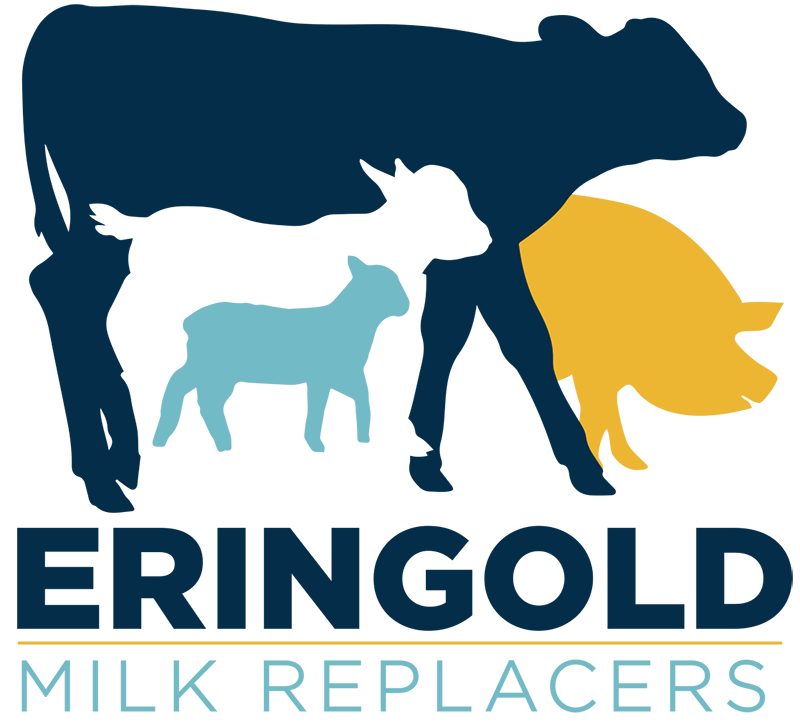Guidelines for Calf Rearing
Giving your calves the best possible start in life is very important to ensure they thrive, stay healthy and to mitigate losses on the farm. There are some guidelines you may want to look at in order to reach the best possible results.
Colostrum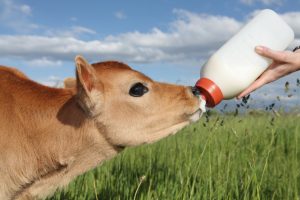
A newborn calf must rely on colostrum from its mother until its own immune system is developed at 1 to 2 months of age. Colostrum contains antibodies or immunoglobulins (essential proteins) necessary to provide the calf with protection from disease. It is very important to give newborn calf colostrum as soon as possible.
After just 12 hours the quality is already 40% less in colostrum and the permeability of the intestinal tract also rapidly increases within the first 6 hours of birth. This is why it is vitally important that the calf receives colostrum fast, optimally within the first 2 hours of life and a minimum feeding of at least three litres.
Calf Milk Replacer
There are several different kinds of milk replacer out there, and our quality calf milk replacers are easily digested in the gut, moving through the calf in only 2-3 hours, compared to 5-8 hours for traditional curding (casein) formulas. This results in calves becoming hungrier quicker and seek feed, ie. Concentrates which not only improves growth rates but also greatly aids in faster rumen development. All of our products have Schils protection plus package which is a blend of specially selected ingredients to support intestinal health as well as the immune system of calves. Visit our milk replacer range here at: https://eringoldltd.com/categories/calf/
Temperature and concentration of milk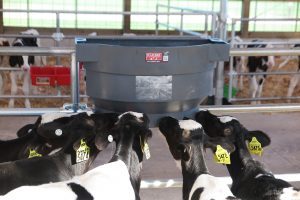
Milk should be prepared in water 45-50 degrees, with the ideal drinking temperature for a calf being 38-42 degrees.
We recommend after feeding whole milk for the first 5-7 days, then move over onto milk replacer, starting at 600grm per calf per day i.e 2 Litres at 150grm/L Morning and 2 litres at 150grm/L Evening. At 3-4 weeks the farmer should have built this up to an optimum 900grm per calf per day which is 3Litres at 150grm/L Morning and 3Litres at 150grm/L Evening.
This can then be tapered back down in order for calves to take in sufficient roughage and concentrates and promote rumen development for faster more efficient weaning.
It is important with feeding milk replacer to always gently increase or decrease the quantity. This should be done over a transition period and not overnight. This will prevent any setbacks in calves from struggling with the sharp increases or decreases in milk.
Housing for calves
To help reduce the risk of spreading disease and bacteria, it is recommended that you try to keep calves in individual pens for the first 3 weeks. Usually disease is spread through direct contact with other calves so this will help reduce that problem. Statistically farms that use individual pens for young calves at this early stage have reduced losses than those compared to farms that do not follow this practice.
Usually after this 3 week period, calves can then start to be put into groups.
Bedding
Calves should be housed on a dry surface, such as a thick layer of straw. It is important to clean out the bedding regularly to reduce the risk of disease but also to ensure that the ground stays dry. If your calves are lying on wet bedding there is an increased risk of them contracting diseases owing to them being subject to cold and damp over time.
Cold wind
Ensure there is not a draught coming through into the calf pen. This can cause respiratory problems in the calves. To prevent this, you can build a makeshift roof and walls in the pen to create more protection for the calves to try and block the cold air. This creates a better climate for the calves to lie down in.
Winter Months
In the colder months it is important to keep an eye on spells of cold weather. Ensure that the calves have a dry protected section to lie down in, if needed some of the smaller younger calves may need calf coats for extra protection, and you can also increase the feed quantity by 10% per calf per day to ensure the calf has ample energy through nutrition to keep its body temperature safe.
Eringold OXI is specifically designed for calves with issues of respiratory problems and will greatly help improve resistance and decrease the number of lung treatments. Research has shown that the addition of OXI Plus in milk replacer can decrease the number of calf losses and veterinary treatments. Healthy calves will thrive, so with the increase in consumption of solid feed this will inevitably result in extra weight at weaning.
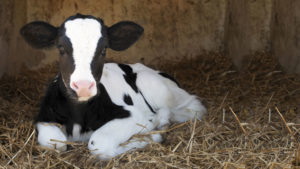
Hygiene
To keep calves healthy, lower veterinary costs and keep losses to a minimum on farm it is vitally important to try to keep management and hygiene at a high level to help reduce the risk of disease on farms. Not only should you be maximizing your calves health and growth through high quality colostrum and milk replacer nutrition, but also reducing your calves risk to disease by creating a clean disease free environment for them to thrive in. 50% of calf deaths are due to scours caused by poor hygiene on farms.
Ensure calves have a dry, clean bedding at all times, mucking out when needed and adding additional bedding when required.
If batch rearing, between batches try to clean out the calf pens and disinfect before a new batch is introduced. Try to keep calves in batches with similar ages. Younger calves maybe more exposed and weaker to disease when put into a batch with older calves. If a calf falls sick, remove immediately from the batch to an individual pen to reduce the risk of spreading disease.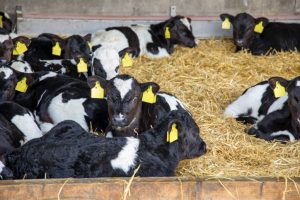
Ensure all feeding instruments such as teats/buckets/automatic feeder tubes are all thoroughly cleaned regularly to reduce a build up of bacteria. If feeding sick calves, make sure you do not use the same buckets/teats when feeding other animals.
For any more information on calf rearing or our products please use our contact us page to get in touch at https://eringoldltd.com/contact/

